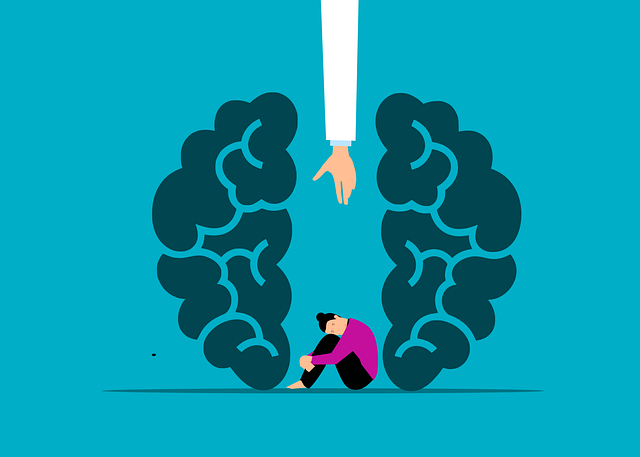In Oregon's Marion County, civil commitment proceedings are a critical component of mental health law and advocacy. This process, initiated by a qualified professional and reviewed by a court, balances an individual's right to freedom with their need for severe mental illness treatment. Robust legal representation is key, protecting rights and ensuring fair treatment throughout these complex proceedings. Marion County advocacy groups play a vital role in guiding individuals and families, empowering them to understand their rights in mental health cases and navigate the Oregon commitment process. Through education, workshops, and online platforms, these groups enhance legal representation options, fostering improved mental health services and rights protection within the community.
“Mental health law advocates play a vital role in protecting and securing individual rights within complex systems. This article delves into critical aspects of mental health advocacy, focusing on Oregon’s landscape. We explore civil commitment proceedings, from understanding the process in Marion County to empowering community members with effective strategies. Learn about the significance of legal representation in ensuring fair treatment during commitments and navigate Oregon’s unique approach step-by-step. Discover how advocacy strengthens support systems for those in need.”
- Understanding Civil Commitment Proceedings in Oregon: A Comprehensive Overview
- The Role of Advocacy in Mental Health Law: Protecting Individual Rights
- Marion County's Approach to Mental Health Commitments: What You Need to Know
- Legal Representations in Mental Health Cases: Ensuring Fair Treatment
- Navigating the Oregon Commitment Process: Step-by-Step Guide for Families and Individuals
- Empowering Community Members: Advocacy Strategies for Mental Health Support
Understanding Civil Commitment Proceedings in Oregon: A Comprehensive Overview

In Oregon, civil commitment proceedings play a crucial role in the state’s approach to mental health law and advocacy, particularly in Marion County. These legal processes are designed to balance an individual’s right to freedom with their need for treatment when facing severe mental illness. The commitment process begins with a petition filed by a qualified professional, such as a physician or licensed clinical social worker, who believes an individual meets the criteria for involuntary treatment. This petition is then reviewed by a court, which conducts a hearing to evaluate the person’s mental state and the need for confinement.
Understanding the Oregon commitment process is essential for both those seeking legal representation in mental health cases and advocates working within Marion County. The rights of individuals involved in these proceedings are protected by law, ensuring they receive fair treatment and access to necessary services. Legal representation can be vital, guiding clients through complex regulations and advocating on their behalf to ensure their rights are upheld throughout the civil commitment proceedings.
The Role of Advocacy in Mental Health Law: Protecting Individual Rights

In the realm of mental health law, advocacy plays a pivotal role in protecting the rights of individuals facing challenging circumstances. When it comes to civil commitment proceedings, such as those involved in Oregon’s commitment process, effective advocacy ensures that every person receives fair treatment and access to appropriate legal representation. Marion County advocacy groups have been instrumental in ensuring that the rights of those with mental health issues are upheld throughout these processes.
These advocates work tirelessly to empower individuals by providing guidance and support during a time when they might feel vulnerable. They help navigate the complexities of the Oregon commitment process, ensuring that clients understand their rights and options. Through dedicated legal representation, advocacy groups can challenge any unfair practices or violations, thereby upholding the dignity and autonomy of those involved in mental health cases.
Marion County's Approach to Mental Health Commitments: What You Need to Know

In Marion County, Oregon, the approach to mental health commitments is governed by strict adherence to mental health law and advocacy principles. The county follows a structured process that includes civil commitment proceedings, ensuring individuals facing potential involuntary commitment have robust rights protected under Oregon’s commitment process. This involves comprehensive legal representation for all parties involved, focusing on balancing public safety with respect for the individual’s due process rights in mental health cases.
Advocacy plays a pivotal role here, as dedicated professionals guide clients through every step of the civil commitment proceedings. They ensure that those in need receive appropriate care while upholding their legal rights, navigating complex aspects of mental health law. This approach not only emphasizes fairness but also fosters understanding and empathy within the community, reflecting a holistic view of Oregon’s commitment process.
Legal Representations in Mental Health Cases: Ensuring Fair Treatment

In mental health cases, especially complex ones involving civil commitment proceedings, having robust legal representation is paramount to ensuring fairness and protecting the rights of individuals. Oregon’s commitment process demands a deep understanding of mental health law, and this is where experienced advocates come into play. They guide clients through the intricate procedures, from initial assessments to court appearances, making certain that every step aligns with the law.
Effective legal representation in these cases involves explaining the rights in mental health cases to clients, ensuring they understand their options and the potential outcomes. This process is crucial, particularly in Marion County advocacy, where advocates must navigate a local system while adhering to state and federal guidelines. By providing knowledgeable guidance, these professionals empower individuals to make informed decisions during challenging times.
Navigating the Oregon Commitment Process: Step-by-Step Guide for Families and Individuals

Navigating the Oregon Commitment Process requires a thorough understanding of civil commitment proceedings within the state’s mental health law framework. For families and individuals involved, seeking guidance from experienced Marion County advocacy groups is essential. These organizations provide invaluable support throughout the process.
The first step involves recognizing when emergency intervention is necessary for an individual exhibiting severe mental distress or dangerous behavior. If concerned citizens or family members believe someone needs immediate assessment, they should contact local authorities or a crisis hotline. Following this, professional evaluators will conduct comprehensive examinations to determine if civil commitment proceedings are warranted. Legal representation plays a crucial role here, ensuring the rights of all parties involved are protected during these sensitive cases.
Empowering Community Members: Advocacy Strategies for Mental Health Support

In many communities, empowering individuals with knowledge about their rights in mental health cases is a powerful advocacy strategy. This includes understanding processes like civil commitment proceedings and the Oregon commitment process, which are integral parts of the Marion County advocacy landscape. Educating community members about their legal representation options during these sensitive times can significantly impact outcomes. By fostering awareness, individuals can navigate the complexities of mental health law with confidence, ensuring they receive appropriate support and care.
Community-driven initiatives and legal aid organizations play a pivotal role in disseminating information about rights and available resources. Through workshops, informational sessions, and accessible online platforms, folks can learn about their entitlements within the mental health system. This proactive approach not only empowers individuals but also strengthens the overall advocacy effort for improved mental health services and protection of rights in Marion County and beyond.
